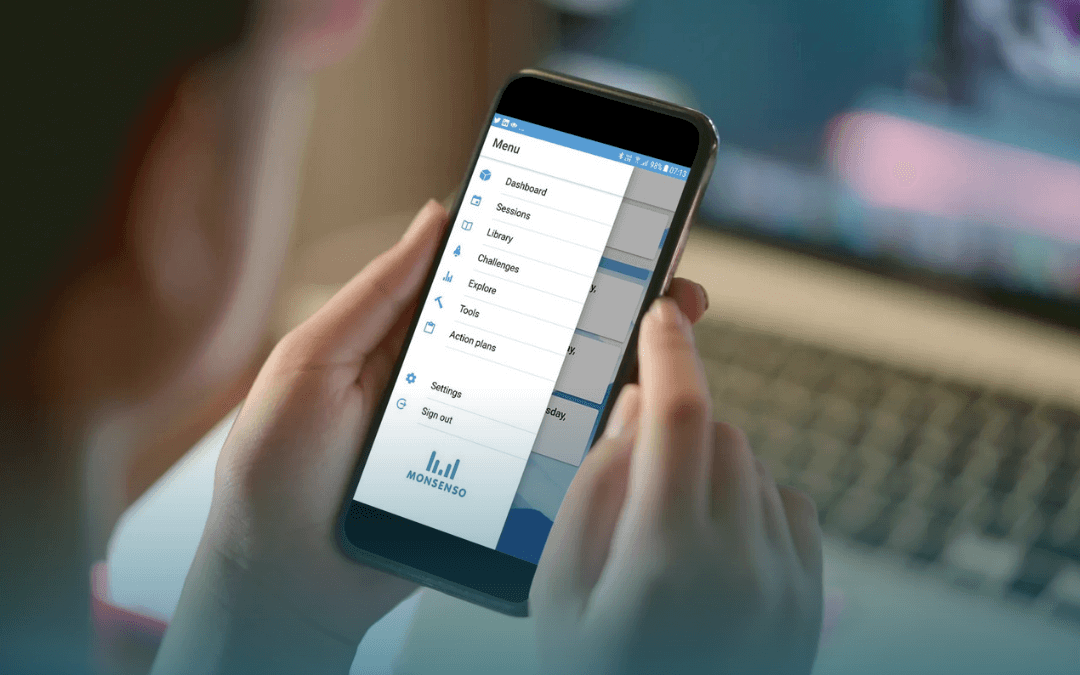
Monsenso signs contract with the Norwegian University of Science & Technology
Monsenso has signed a contract with the Norwegian University of Science & Technology to use Monsenso’s digital health solution to collect sensor data in a research project aiming at improving relapse prevention with substance use disorders.
The research study aims to improve the prediction of relapse using mobile sensing to identify a digital phenotype approach to relapse prevention. The research project is led by Anders Lauvsnes, Department of Mental Health, Faculty of Medicine and Health Sciences, at the Norwegian University of Science & Technology and covers up to 100 research participants with substance use disorders.
Mobile sensing, the use of passive data generated by personal electronic devices such as smartphones and wearables to measure human functioning, has generated considerable research interest over the past years. Particularly in the field of mental health, where the collection of continuous and objective data can lead to clinically useful biomarkers to support the prevention, early intervention, and treatment of a variety of conditions, including addiction.
“Addiction and substance use disorders are major health challenges worldwide, and relapse is a core component of addictive disorders. The dynamics surrounding relapse, and particularly the immediate period leading up to it, are only partially understood, due in large part to the difficulty of collecting reliable and sufficient data from this narrow period,” says Anders Lauvsnes. “Mobile sensing offers the opportunity to identify predictive patterns of relapse by accurately mapping behaviour. Together with data on symptoms worsening, it can help us identify a digital phenotype for relapse prevention”.
The Monsenso digital solution will be used to remotely monitor study participants, collecting sensor data from mobile phones along with sensor data from wearables (Whitings). After completion of the data collection, the data will be analysed along with neurocognitive measures using machine learning to predict imminent relapse to substance use and describe individual and temporal variability in risk.
“We are very excited to contribute to this project of creating a digital phenotype to help reduce relapse,” said Thomas Lethenborg, CEO of Monsenso. “Mobile sensing does indeed offer a data-driven method to improve condition monitoring for actionable outcomes, such as early signs of relapse, thereby ensuring the right individuals receive the right treatment at the right time”.
About Monsenso digital health solution:
Monsenso is an innovative technology company offering a digital health solution used for decentralised trials, remote patient monitoring and treatment support. Our mission is to contribute to improved health for more people at lower costs by supporting treatment digitally and leveraging patient-reported outcomes data. Our solution helps optimise the treatment and gives a detailed overview of an individual’s health through the collection of outcome, adherence, and behavioural data. It connects individuals, carers, and health care providers to enable personalised treatment, remote care, and early intervention. We collaborate with health and social care, pharmaceuticals, and leading researcher worldwide in our endeavours to deliver solutions that fit into the life of patients and health care professionals. To learn more visit www.monsenso.com.
For additional information contact:
Bettina van Wylich-Muxoll
Chief Marketing Officer
marketing@monsenso.com
Monsenso

